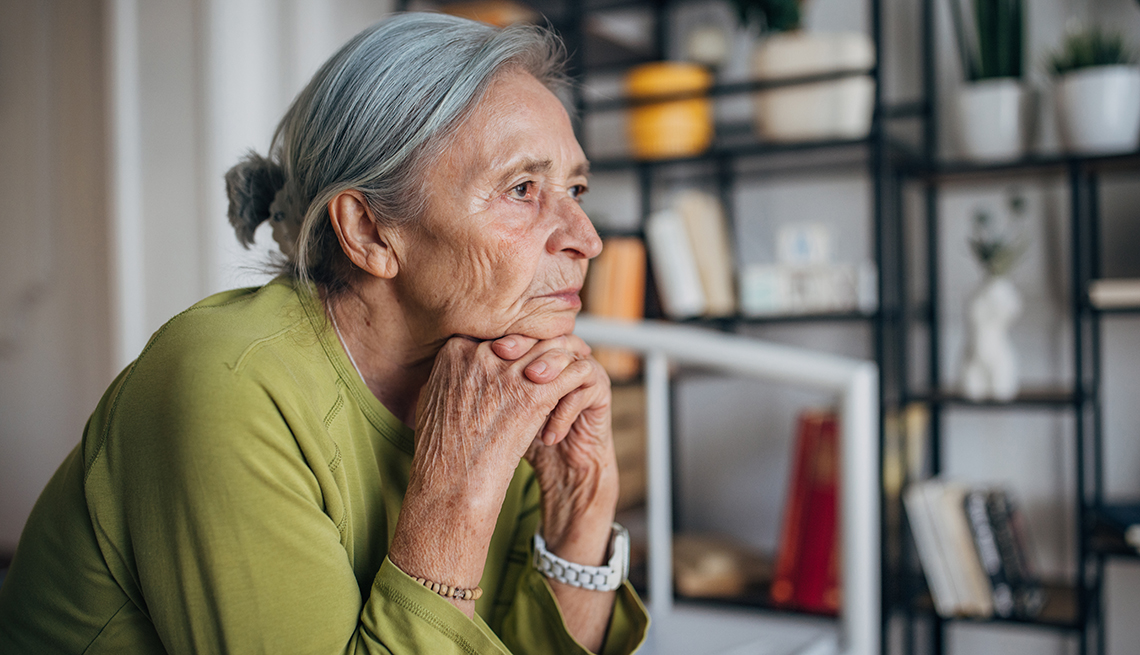
- Select a language for the TTS:
- UK English Female
- UK English Male
- US English Female
- US English Male
- Australian Female
- Australian Male
- Language selected: (auto detect) - EN
Play all audios:
Previous research has reached similar conclusions. Adults over age 50 who were followed for an average of six years were about 50 percent more likely to develop dementia if they experienced
prolonged loneliness and social isolation, one review found. Another study that looked at midlife adults found those who were persistently lonely were more likely to develop Alzheimer’s
disease, the most common type of dementia, and additional research has found faster cognitive decline in adults over 65 who report loneliness. 6. DEPRESSION AND ANXIETY It may not be
surprising that loneliness and isolation can lead to poor mental health. And the connection goes both ways: Depression and anxiety can cause people to withdraw and feel lonelier. Research
shows that having someone to confide in can sometimes stave off depression, even in people at high risk. Social connection also may lower the risk of suicide, especially for men. THE LINK
BETWEEN LONELINESS AND YOUR HEALTH The links between social disconnection and poor health are rooted in our most basic biology, as well as our psychological and behavioral responses, experts
say. “Penguins who huddle together stay warmer,” and humans aren’t much different, says researcher Kerstin Gerst Emerson, a clinical associate professor at the University of Georgia. “We’ve
always survived better if we are together.” Brigham Young University’s Holt-Lunstad says multiple biological mechanisms are at work. One that may be particularly important, she notes, is
chronic inflammation, which is linked to many different diseases and is often elevated in socially isolated people. Spikes in stress hormones, immune system disturbances and changes in gut
microbes also may play roles, the surgeon general’s advisory says. All that dysregulation can cause a lot of “wear and tear on the body over time,” Holt-Lunstad says. Loneliness and
isolation change how people behave. Having someone around to encourage you to take your medications and go to the doctor when needed may help you manage your health problems, says Cené of UC
San Diego Health. Other people may help you eat better and move more, Emerson says. “If you’re lonely and alone — and this happened to a lot of us during the pandemic — maybe you just eat a
bowl of cereal for dinner because you can’t be bothered to make a whole meal for yourself.” The person who walks half a block on their own might take a much longer walk with a friend. And
having a friend or neighbor who checks in on you regularly can literally save your life, she says. HOW TO WIDEN YOUR WORLD Feeling lonely or isolated? Start changing that with small
steps, researcher Kerstin Gerst Emerson suggests. That might mean something as simple as walking outside and smiling at another person. “It’s going to make a difference to you, but also the
person you just smiled at,” she says. Can’t get out? Call and check in on a neighbor. “Making that conscious effort to reach out is really important,” Emerson says. “And if you don’t want to
do it for yourself, maybe think, _I’m going to make a difference in someone else's life_.” Other ideas from the surgeon general’s advisory on social connection: * Reach out to at least
one friend or family member every day. * Minimize distractions when you are with other people. Don’t check your phone at a meal. * Join fitness, hobby, religious, professional or service
groups. * Spend less time on activities that make you feel disconnected. This can include time on social media. * If you are struggling, tell your health care providers. Some people with
social anxiety or other deep-rooted difficulties will benefit from therapy, Emerson says. For others, she says, practical solutions — such as a regular ride to church or the senior center —
can make a world of difference. _Editor's note: This story, first published June 22, 2023, has been updated to include new information._




